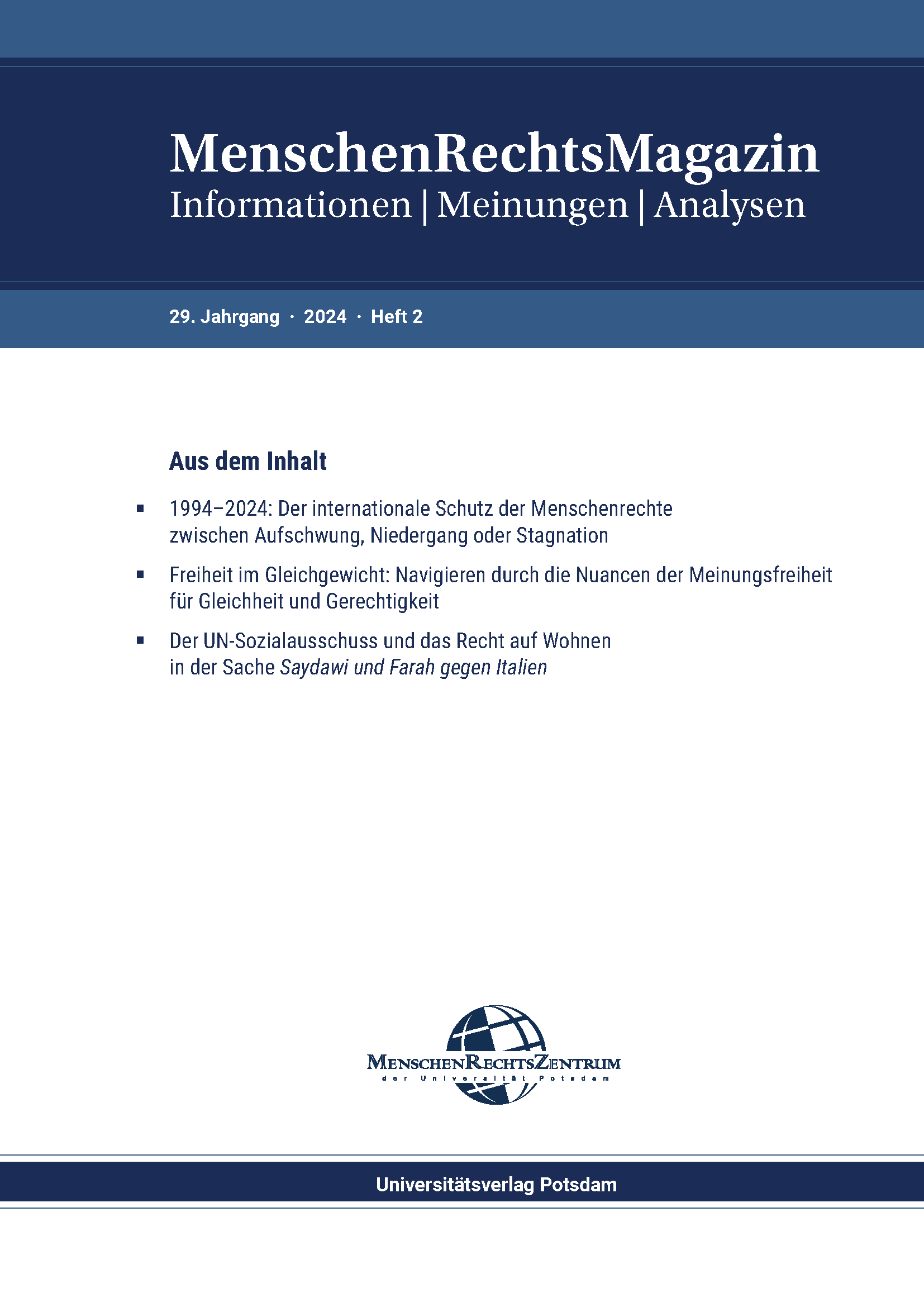The UN Committee on Economic, Social and Cultural Rights and the right to housing in Saydawi and Farah v. Italy
DOI:
https://doi.org/10.60935/mrm2024.29.2.12Keywords:
CESCR, Social Rights, Right to Housing, Forced Eviction, Proportionality, ResourcesAbstract
- A domestic legal remedy that is not effective for remedying the alleged human rights violation must not be exhausted within the meaning of Art. 3 (1) OP-ICESCR.
- Forced evictions must be in accordance with the principles of proportionality and reasonableness, pursuant to Art. 11 (1), Art. 2 (1) and Art. 4 ICESCR read in conjunction. Accordingly, a forced eviction is justified if it is (1) determined by law, (2) pursues general welfare, is (3) suitable and (4) necessary for its achievement. Lastly, (5) it must be adequate in that the benefits of the restriction in promoting the general welfare must outweigh the effects on the enjoyment of the right to be restricted.
- The proportionality-assessment must take into account the availability of alternative housing, the personal circumstances of the persons concerned, their willingness to cooperate with the authorities and whether the property is owned by individuals or legal entities.
- If the persons concerned are unable to find alternative housing on their own, the State must take all appropriate measures within its available resources to provide alternative and adequate housing.
- The lack of an opportunity to review the proportionality of the eviction before an independent and impartial tribunal constitutes ipso facto a violation of the right to housing.
Downloads
Published
2024-11-19
Issue
Section
Case discussions
License
Copyright (c) 2024 Gregor Kreller

This work is licensed under a Creative Commons Attribution 4.0 International License.


